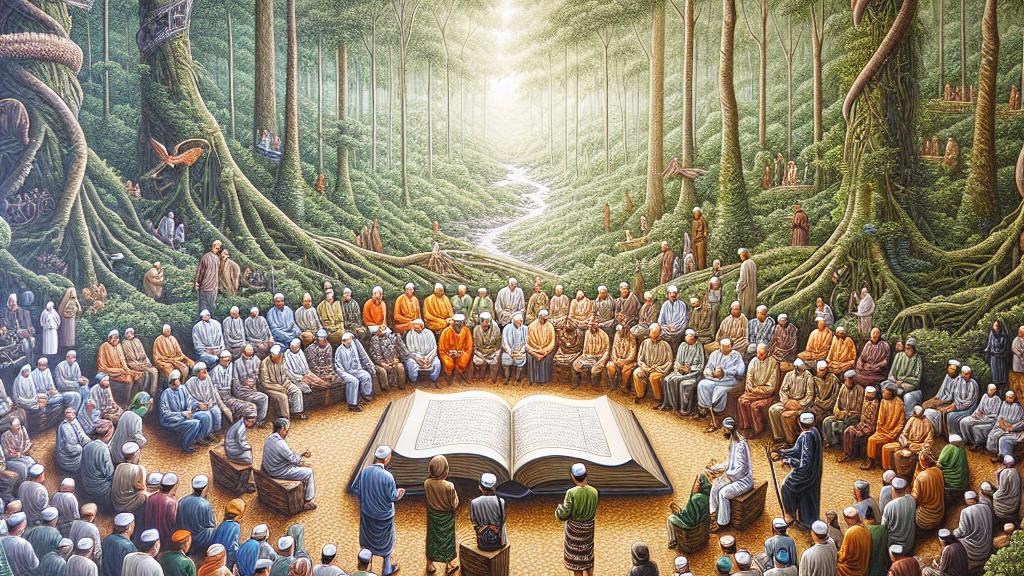Malaysia's Prime Minister Decides Against New Rules for Muslims at Non-Muslim Events
Overview
- Prime Minister Anwar Ibrahim halts controversial guidelines for Muslim participation.
- Public outcry showcases Malaysia's commitment to interfaith unity.
- This decision emphasizes the importance of personal religious freedoms.

Context of the Decision
In a remarkable turn of events, Malaysian Prime Minister Anwar Ibrahim recently scrapped a contentious proposal that aimed to impose guidelines on how Muslims could engage in non-Muslim events. This decision came after intense public backlash ignited by comments from de facto Islamic Affairs Minister Na’im Mokhtar, who suggested that Muslims ought to seek permission before attending such gatherings. Anwar made it clear: 'There is no need for the guidelines because as Muslims they should know' how to conduct themselves in diverse settings. By taking this stand, he not only emphasized the need for personal responsibility but also reinforced Malaysia’s rich tradition of promoting harmonious interfaith relations.
Public Reaction and Cultural Harmony
The reactions from the public were both swift and passionate, underscoring a collective belief in unity amid diversity. Figures like former Cabinet minister Rafidah Aziz articulated that Muslims in Malaysia possess a profound understanding of their own faith, stating, 'We are not ignorant' of our values. In fact, countless Malaysians shared stories of celebrations where different religious backgrounds meld and thrive together—think of colorful weddings where Muslims and non-Muslims come together, or festive occasions filled with shared joy. This spirited defense of cultural coexistence powerfully illustrated that, rather than division, diversity is a beacon of strength for the nation. The fabric of Malaysian society is interwoven through such shared experiences, reinforcing the notion that interfaith interaction has always been a hallmark of life in Malaysia.
Implications for Religious Freedom
Anwar’s decision to retract the proposed guidelines signals a poignant affirmation of personal religious freedom, serving as a reminder that reforms must respect the very essence of faith. This pivotal moment in Malaysian governance invites citizens to reflect on the nature of religious expression in a democratic society. Journalists like A. Kadir Jasin highlighted the importance of participation across faiths, pointing out that even the highest-ranking leaders routinely engage in events from different religions. Such actions exemplify that a positive government nurtures its citizens' rights to practice their faith freely, without unwarranted restrictions. By declaring his support for religious autonomy, Anwar opens the door for deeper interfaith dialogues, encourages shared celebrations, and ultimately inspires citizens to embrace their differences as vital aspects of their identity and heritage.

Loading...